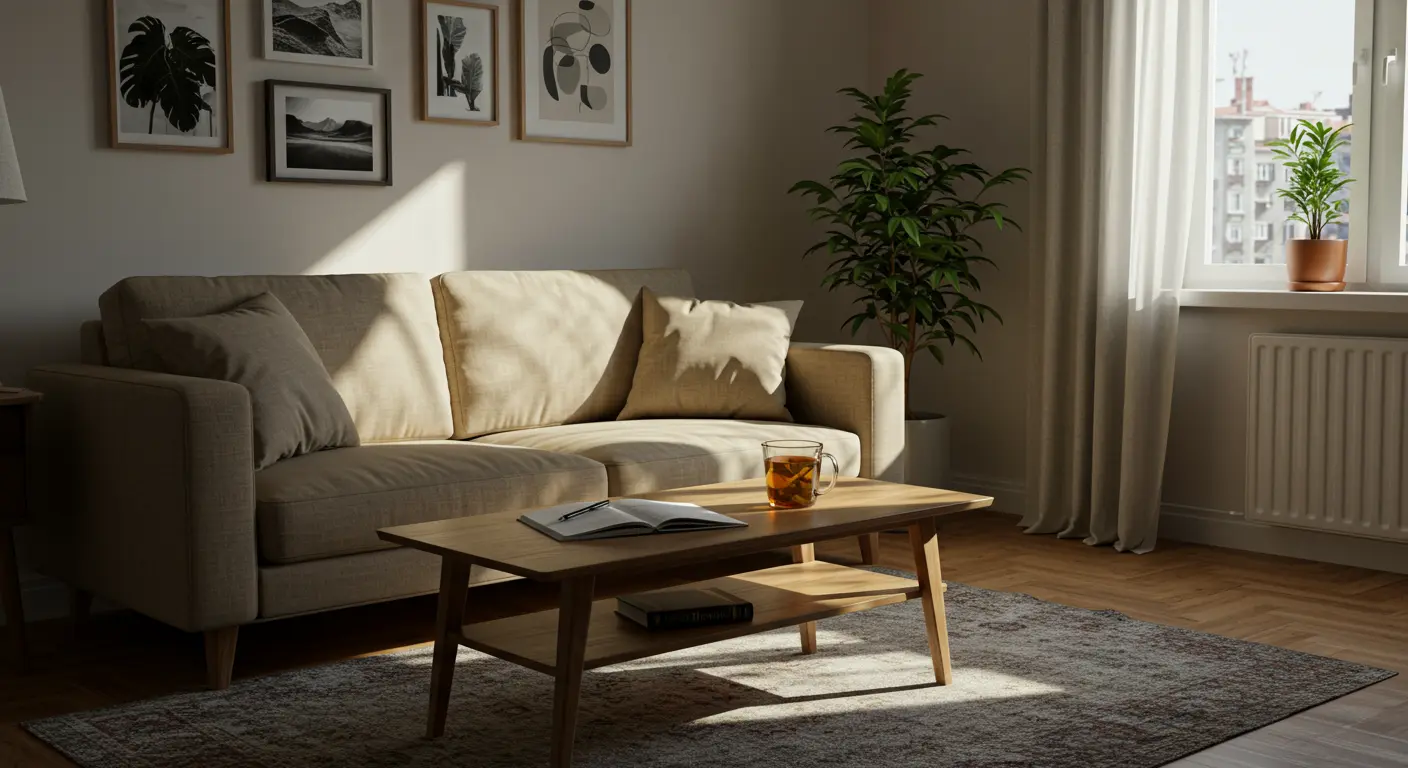Living Alone: Embracing Independence and Personal Growth

Understanding the Experience of Living Alone
Living alone represents a profound life transition for over 36 million Americans—one that combines liberation and accountability. This newfound autonomy touches every aspect of your daily life: the meals you savor, the rhythm of your cleaning rituals, even the way you arrange furniture to catch the morning light.
Such independence encourages self-discovery and personal evolution. You’re free to create routines that align with your deepest aspirations. The quietude offers precious sanctuary for introspection—a space where you can truly listen to your inner voice and understand what you truly want.
Living solo improves your decision-making skills and builds strong self-reliance. Each daily choice, every household crisis you navigate independently, transforms you into someone more resourceful and assured. This sense of empowerment can be life-changing.
Emotional Wellbeing and Living Alone
The emotional landscape of solo living varies greatly from person to person. For many, it provides a safe space where you can connect with your authentic self and process feelings without masks or pretense. Here, you’re free to celebrate with unbridled joy or work through grief at your own pace.
However, living alone has its challenges. Research links living alone to higher rates of depression and anxiety, especially when you become too isolated. Without a built-in support system, emotional difficulties can intensify if not proactively managed.
The key to emotional well-being is finding the right balance—savoring your home’s freedom while nurturing meaningful connections beyond your walls. Those who achieve this balance often discover enhanced emotional intelligence, profound self-awareness, and a richer appreciation for both solitude’s gifts and social connection’s warmth.
Physical Health Considerations
Living alone requires more attention to your physical health—there’s no built-in accountability partner to notice subtle changes or gently nudge you toward better habits.
Safety deserves special attention. Consider these essentials:
-
Keep emergency contacts readily available.
-
Maintain a well-stocked first-aid kit.
-
Know basic self-care for minor illnesses.
-
Arrange regular check-ins with friends or family.
On the positive side, living alone provides complete control over health routines, often yielding remarkable results. This autonomy allows you to:
-
Stock your kitchen with foods that meet your specific nutritional needs.
-
Exercise on your own schedule and terms.
-
Create a sleep environment optimized for your rest.
Creating Your Ideal Home Environment
When you live alone, your home becomes a true reflection of who you are. You possess the rare freedom to craft an environment that mirrors your soul, without a single compromise.
This customization goes beyond looks and focuses on functionality. Imagine organizing your space to support your daily routine—perhaps a tranquil meditation corner, an inspiring home office that sparks creativity, or a kitchen designed with the precision of a solo chef’s dreams.
Every element contributes to your personal space. Lighting that flatters your mood. Colors that energize your spirit. Furniture arranged to support your unique flow. Thoughtful design is a form of self-care—ensuring your home lifts you up rather than weighs you down.
Designing a Space That Reflects You
To transform your home into an authentic reflection of yourself, start with what truly makes you happy. Whether your aesthetic leans vibrant, minimalist, or delightfully eclectic, you have complete freedom to express yourself.
Consider how different spaces can serve multiple purposes, adapting to your lifestyle’s varied needs. That dining table? It might moonlight as your creative workspace. A cozy living room corner could transform into a reading sanctuary or meditation retreat. Without others’ preferences to navigate, you can prioritize what truly matters to you and design accordingly.
Personal touches make a space feel truly yours and reinforce your identity. Consider displaying:
-
Meaningful photographs
-
Souvenirs from travels
-
Family heirlooms
-
Artwork that resonates with you
Remember, your home can evolve as you do; the ability to refresh your space is an empowering aspect of living alone.
Building a Supportive Social Network
Living alone doesn’t equal living in isolation—quite the opposite, actually. A vibrant social network is essential for your well-being. Studies show that: robust social connections significantly impact mental and physical health. Some studies suggest isolation’s harm rivals smoking 15 cigarettes daily.
Building this network requires deliberate action—you need to actively create opportunities for connection. Effective strategies include scheduling regular conversations with friends and family, establishing recurring dates with local connections, and joining community groups that align with your passions.
Think of your social circle as having different types of relationships. Aim for a mix of relationships, such as:
-
Close confidants for emotional support.
-
Activity partners for shared hobbies.
-
Professional contacts for career growth.
-
Casual acquaintances for light social interaction.
Remember that quality often matters more than quantity; a few deep connections can be more supportive than many superficial ones.
Engaging in Social Activities
Proactively seeking social connection helps prevent isolation. Consider these pathways to meaningful engagement:
Coping Strategies for Loneliness
Loneliness affects everyone who lives alone at times—this is perfectly natural and doesn’t have to define your experience. The crucial first step? Understanding that solitude (a chosen, positive state) is very different from loneliness (feeling disconnected and isolated). Simply accepting occasional loneliness as part of the human experience can diminish the additional pain of self-judgment.
Having effective coping strategies is important. When loneliness arises, consider:
-
Physical Activity: Regular exercise releases mood-boosting endorphins.
-
Time in Nature: Spending time outdoors is proven to reduce feelings of isolation.
-
Ambient Sound: Background noise from music or podcasts can create a sense of companionship.
-
Pet Companionship: Adopting a pet provides affection and a comforting routine.
Mindfulness and Self-Care Practices
Mindfulness practices are helpful tools for managing solo living’s emotional terrain. Even five minutes of daily meditation can teach you to observe loneliness without being overwhelmed by it.
Consistent self-care rituals give structure to your day and support your wellbeing. Simple daily rituals can provide comfort and stability.
The Benefits of Living Alone
Personal Growth Through Solitude
This uninterrupted time provides excellent opportunities for deep focus and creative expression. Without typical household interruptions, you can focus completely on mastering new skills, nurturing passion projects, or exploring your creativity in ways that feel impossible in shared spaces.


